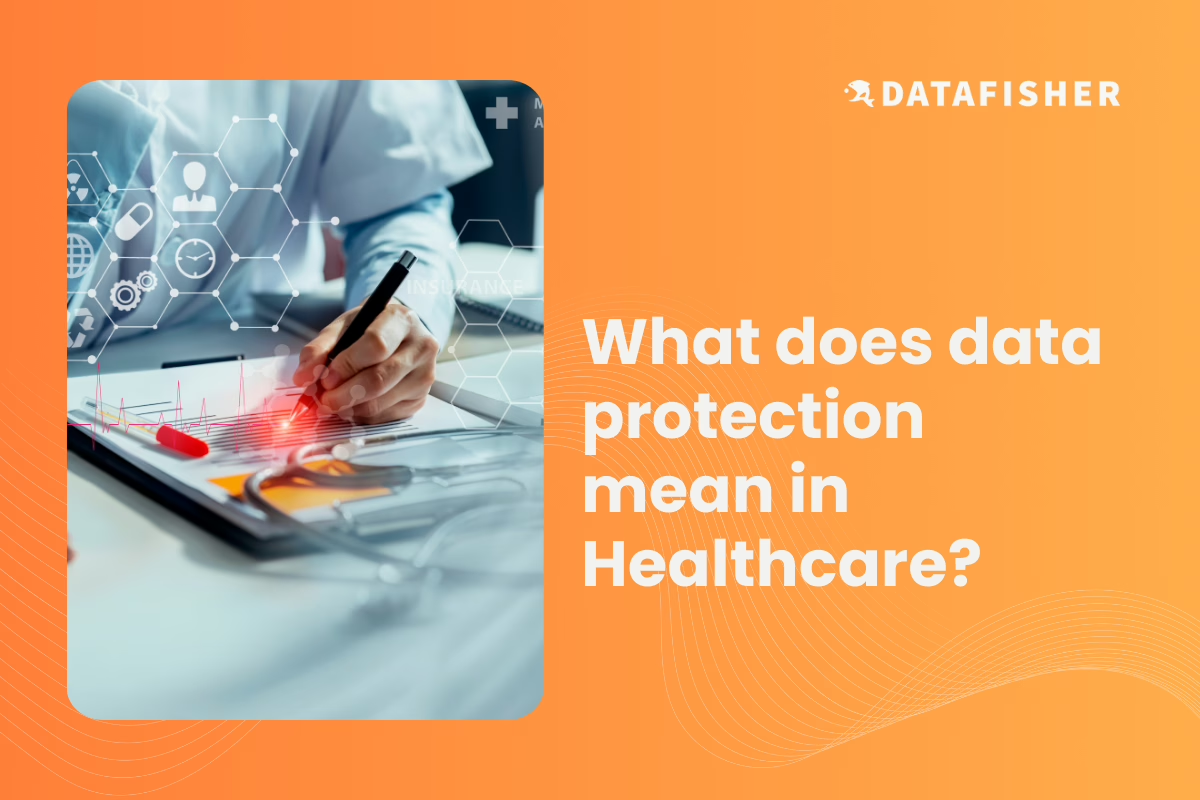Data protection in healthcare, particularly in Scandinavian countries, encompasses a range of issues including legal regulations, technological advancements, public attitudes, and the challenges of data management and cybersecurity.
Cybersecurity Attacks in Healthcare
In Sweden, there was a 26% increase in cybersecurity attacks on the healthcare sector, as reported by the Swedish Data Protection Authority (IMY), highlighting the urgent need for robust data protection measures. Globally, healthcare cyberattacks have surged, with a 74% increase in 2022. In terms of data breaches, the healthcare industry in the United States saw the records of 51,884,675 individuals breached in 2022, significantly higher than in previous years. These numbers reflect a growing concern for the security of health data against cyber threats.
Costs and Impacts of Cyberattacks
Cybersecurity incidents in healthcare are not only frequent but also expensive. For instance, a healthcare data breach costs an average of $10.10 million, significantly higher than breaches in other industries, according to SafetyDetectives and HIPAA journal. Ransomware attacks, which are a prevalent form of cyberattacks, cost healthcare organizations an average of $1.85 million to recover. Nearly a quarter of healthcare IT staff believe that ransomware attacks have increased patient mortality rates due to delays and complications in medical procedures.
This trend underscores the broader challenge of protecting health data against a variety of threats, such as cyber-attacks, software bugs, and unauthorized access. The SHiELD project in Europe exemplifies initiatives focused on enhancing the security of health data exchange across borders, with a focus on privacy by design models and tools, as well as mechanisms for data and privacy protection.
Trends in Cybersecurity
According to Truesec, the number of ransom attacks in Sweden tripled in 2020, with the cost of cybercrime exceeding 30 billion SEK per year. These attacks are not only financially damaging but also disrupt patient care, with 66% of healthcare organizations reporting disruptions to patient care following a cyberattack. Additionally, the average ransom payment in 2023 spiked by 29% to $995,450, indicating an escalation in the severity of ransomware attacks.
Data Breaches and Reporting
The number of healthcare data breaches has been fluctuating, with a slight reduction reported in recent times. However, the scale of these breaches remains a concern, with millions of records being affected annually. The trend also shows an increasing focus on business associates of healthcare providers, who reported more breaches than the healthcare providers themselves in recent years.
Legal Frameworks
Legal frameworks also play a critical role in data protection. In Sweden, for instance, data protection legislation aligns with the General Data Protection Regulation (GDPR), setting conditions for the processing of personal health data. The Swedish Data Protection Authority (IMY) is responsible for enforcing these regulations, ensuring that healthcare providers and other entities handle patient data responsibly.
Data Protection & Privacy
The healthcare system structure in Scandinavian countries also impacts data protection. In Sweden, the decentralized, tax-funded healthcare system with universal coverage integrates modern technologies and preventive measures, contributing to efficient healthcare delivery and data management. However, this decentralization also poses challenges in ensuring uniform data protection practices across different regions and healthcare providers.
Data sharing and transparency have emerged as significant challenges in Scandinavia. While the social-democratic traditions and high trust in public institutions in these countries foster a conducive environment for data sharing, the lack of adequate resources and the complexity of navigating different data custodians and regulations can hinder effective data management and sharing for research and healthcare improvement.
Patient engagement in the management of their health data is an evolving aspect. In Sweden, patients have the option to comment on notes in their electronic health records (EHRs), but this practice is not yet widespread. The shift towards more collaborative and patient-centered care models is anticipated to influence how patient data is managed and protected
How Datafisher can help
The increasing frequency and severity of cyberattacks in the healthcare sector, as evidenced by the surge in incidents and costs in countries like Sweden, underscore the critical importance of robust data protection measures. With healthcare data breaches costing millions and impacting patient care, there’s an urgent need for comprehensive strategies to safeguard sensitive health information.
In this context, organizations like Datafisher play a crucial role. Datafisher’s focus on learning and training for compliance, data privacy, ethics, and transparency is vital for equipping healthcare professionals and organizations with the necessary skills and knowledge. Training programs that emphasize these aspects can significantly enhance an organization’s ability to handle sensitive data responsibly, comply with legal regulations, and maintain ethical standards.
Effective training in data protection and cybersecurity is not just about preventing breaches; it’s also about building a culture of transparency and ethical responsibility. By educating healthcare staff on the importance of data privacy and the implications of data breaches, organizations can foster a more informed and proactive approach to data handling. This approach is essential not just for compliance with regulations like the GDPR but also for maintaining public trust, which is crucial in the healthcare sector.
Moreover, training and continuous learning in areas like data privacy and cybersecurity can help healthcare organizations stay ahead of evolving threats. As cybercriminals employ more sophisticated methods, staying updated on the latest trends and protective measures is essential. This proactive stance can mitigate the risk of breaches, minimize potential damage, and ensure the continuous, reliable delivery of healthcare services.
In conclusion, the integration of comprehensive training programs, like those offered by Datafisher, into healthcare organizations’ cybersecurity strategies is imperative. Such training empowers organizations to manage data responsibly, comply with evolving regulations, and maintain the highest standards of ethics and transparency, ultimately safeguarding the wellbeing of patients and the integrity of healthcare systems.
